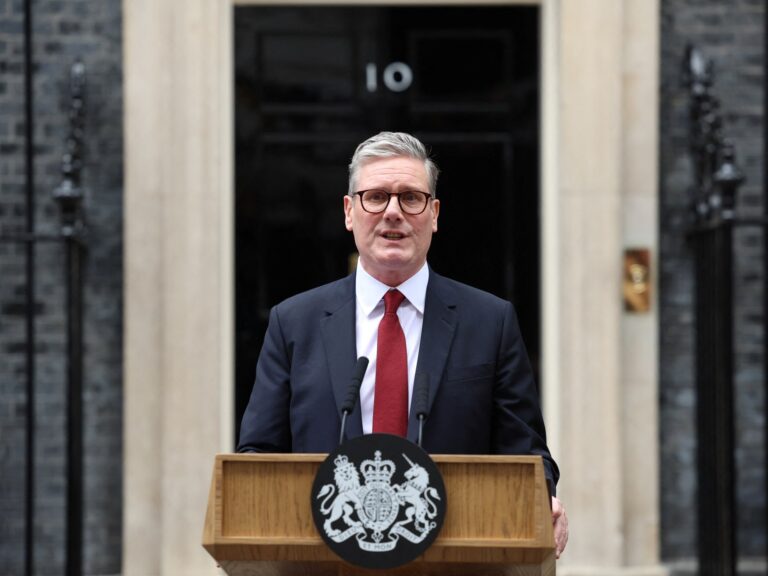The new Prime Minister said the previous Conservative government’s policies “were never a deterrent” and described the policy as “dead and buried”.
British Prime Minister Keir Starmer has said he will not continue the previous Conservative government’s policy of forcibly returning asylum seekers to Rwanda.
“The Rwanda plan was over before it even began. It has never been a deterrent,” Starmer said at his first press conference on Saturday since Labour’s landslide general election victory.
“We are not going to continue with a tactic that does not work as a deterrent,” he told reporters after the Cabinet meeting, describing the plan as “a problem that we are inheriting.”
The controversial law was approved by Parliament in April and declared Rwanda a safe third country, ignoring a UK Supreme Court ruling that found the bill unlawful on human rights grounds.
Authorities began detaining asylum seekers in May.
The then chancellor, Rishi Sunak, pushed ahead with the policy, promising to stop migrants and asylum seekers arriving in small boats from mainland Europe.
Human rights activists and critics of the Sunak government have called the plan to forcibly return people to Rwanda without processing their asylum claims domestically as inhumane.
They expressed concern about the East African country’s own human rights record and said asylum seekers faced the risk of being returned to countries where they would be in danger.
But facing opposition in Parliament, Mr Sunak said in April “there are no conditions, no provisos. These flights are going to Rwanda.”
Tens of thousands of asylum seekers fleeing war and poverty in Africa, the Middle East and Asia have reached Britain in recent years by crossing the English Channel in small boats in a dangerous journey organised by human trafficking rings.
Speaking at a press conference on Saturday, Starmer said the Rwanda plan was widely expected to fail.
“The chances of going to Rwanda are very low – less than one percent – so it’s not a deterrent and everyone understands, especially the gangs who are running this, that the chances of not going to Rwanda, not being processed and staying in paying accommodation for a very long period of time are low,” he told reporters.
Amnesty International’s executive director, Agnes Callamard, called on the new Labour government to make good on its election promise to revoke the Rwanda Agreement.
“Our refugee protection system must be focused on providing, as fairly and efficiently as possible, the safety and certainty that all refugees deserve, no matter how they arrive,” Callamard wrote in a social media post.
She added that this is “as required by our international obligations, the rule of law and fundamental respect for every human being.”
But Suella Braverman, the Conservative immigration hawk who could succeed Mr Sunak as leader, criticised Mr Starmer’s plans.
“It’s a plan that took years of work, a bill of parliament and millions of pounds to put together that could have worked if it had been properly implemented,” she said on Saturday. “We’re going to have some major problems in the near future, and unfortunately they’re going to be caused by Keir Starmer.”
It is also unclear what changes Starmer will make to the response to the migrant crisis, after record numbers of people landed in the UK in the first half of the year.
Tim Bale, a professor of politics at Queen Mary University of London, told The Associated Press that a Labour government needed to find a solution to the small boats crossing the English Channel.
“We’re going to have to come up with other solutions to address that particular problem.”
Meanwhile, Al Jazeera’s Rory Challans, reporting from London on Saturday afternoon, said that apart from an announcement on Rwanda policy, it remained unclear what Starmer’s Labour government would look like.
“There has been a lot of discussion about the changes that this government will bring to British life and politics,” Challans said, referring to the press conference.
“His main argument is that the years of Tory chaos are over,” Challans added, “and for the first time in a long time, the country will be treated first by the government in power, not by a political party.”

